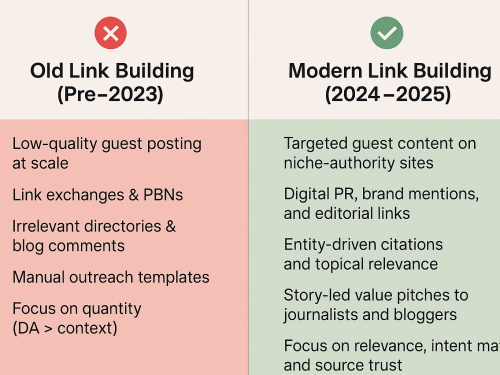
Keyword research is a critical component of any successful SEO strategy. By understanding the words and phrases that people use when searching for information, products, or services, you can optimize your website’s content to rank higher in search engine results pages (SERPs). This comprehensive guide will walk you through the process of conducting effective keyword research to improve your website’s visibility and attract high-quality organic traffic.
What is Keyword Research?
Keyword research is the process of identifying and analyzing the keywords and search terms that your target audience uses when conducting online searches. These keywords are the foundation of your SEO strategy, as they help you understand what your potential customers are looking for and how to best optimize your content to meet their needs.
By conducting thorough keyword research, you can gain valuable insights into your audience’s search behavior and create targeted, relevant content that drives organic traffic to your website.
Why is Keyword Research Important for SEO?
Keyword research is essential for several reasons:
- Understanding your audience: Keyword research provides valuable insights into your target audience’s interests, needs, and preferences. By identifying the keywords they use, you can gain a deeper understanding of their search intent and tailor your content to meet their specific requirements.
- Improving search engine rankings: By optimizing your website’s content with relevant keywords, you increase its chances of ranking higher in search engine results pages. Appearing on the first page of search results significantly improves your visibility and increases the likelihood of attracting organic traffic.
- Driving targeted traffic: By targeting specific keywords, you can attract highly relevant traffic to your website. When your content aligns with what your audience is searching for, you’re more likely to attract visitors who are genuinely interested in your products or services.
- Staying ahead of the competition: Keyword research allows you to gain insights into your competitors’ strategies and identify opportunities for differentiation. By analyzing the keywords they target and their search rankings, you can develop a competitive advantage and position your website more effectively.
Also Read: How SEO Can Help You to Maximize Your Google and Facebook Ads Performance
The Keyword Research Process
Effective keyword research involves several key steps. By following these steps, you can gather valuable data and insights to inform your SEO strategy.
Looking For SEO Related Services to Grow Your Business? Let’s Connect.
1. Define Your SEO Goals
Before you start conducting keyword research, it’s essential to define your SEO goals. Ask yourself questions such as:
- What is the main objective of your website or business?
- Who is your target audience?
- What specific products or services do you offer?
- What promises or unique value propositions does your website make?
By clearly defining your goals, you can focus your keyword research on the most relevant terms and phrases that align with your overall SEO strategy.
2. Brainstorm a List of Topics
To begin your keyword research, brainstorm a list of topics that are relevant to your website or business. Consider what your target audience is interested in and what they may be searching for. For example, if you run a digital marketing agency, some potential topics could include social media, email marketing, website traffic, content marketing, blogging, and PPC.
3. Use External Tools and Resources
To expand your list of keywords and generate new ideas, utilize external tools and resources. Here are some effective strategies:
- Wikipedia: Use Wikipedia to find articles and categories related to your topics of interest. The table of contents and internal links within these articles can provide valuable keyword ideas.
- Google and YouTube Suggest: Type your topics into Google and YouTube search boxes and observe the auto-suggestions that appear. These suggestions are based on real search queries and can give you insights into popular keywords.
- Reddit: Search for subreddits related to your industry or niche and explore the discussions happening within these communities. Pay attention to the language used by Redditors and the topics they are interested in.
- Forums: Identify relevant forums and online communities where your target audience congregates. Explore the discussions and threads to identify specific pain points, questions, and topics of interest.
- Keyword Research Tools: Utilize keyword research tools like Google Keyword Planner, ExplodingTopics.com, Keyword Surfer, Ubersuggest, SEMrush, and Ahrefs to gain deeper insights into search volume, keyword difficulty, and related keywords.
4. Refine Your Keyword List
Once you have generated a comprehensive list of keywords, it’s time to refine and prioritize them. Consider factors such as search volume, keyword difficulty, CPC (cost per click), and business fit. Search volume indicates the number of searches a keyword receives, while keyword difficulty estimates how challenging it is to rank for a particular keyword. CPC provides insights into the commercial viability of a keyword, as it reflects whether people searching for that term are likely to spend money.
5. Analyze Competitor Strategies
Analyzing your competitors’ strategies can provide valuable insights and help you identify opportunities. Study their websites, content, and keyword targeting to understand their approach to SEO. Look for gaps or areas where you can differentiate yourself and offer unique value to your audience. Additionally, identify keywords that your competitors are targeting and assess their ranking position and search volume.
6. Group Keywords and Create Content
Once you have refined your keyword list, group them based on relevancy and search intent. This grouping will help you create targeted content that addresses specific topics and aligns with your audience’s search intent. Develop a content plan that includes blog posts, articles, landing pages, and other types of content that incorporate your target keywords.
6. Group Keywords and Create Content
Once you have refined your keyword list, group them based on relevancy and search intent. This grouping will help you create targeted content that addresses specific topics and aligns with your audience’s search intent. Develop a content plan that includes blog posts, articles, landing pages, and other types of content that incorporate your target keywords.
7. Monitor and Optimize
Keyword research is an ongoing process, and it’s important to monitor your keyword rankings and performance regularly. Use tools like Google Search Console and Google Analytics to track your website’s organic search traffic and identify areas for improvement. Continuously optimize your content based on keyword performance, search trends, and changes in search engine algorithms.
Also Read: The Importance of Internal and External Links in SEO
Conclusion
Mastering keyword research is crucial for effective SEO. By understanding the keywords and search terms that your target audience uses, you can optimize your website’s content to attract organic traffic and improve search engine rankings. Use a systematic approach to keyword research, including brainstorming, external tools, competitor analysis, and keyword refinement.
Continuously monitor and optimize your keyword strategy to stay ahead of the competition and meet the evolving needs of your audience. Remember, keyword research is an ongoing process that requires regular evaluation and adaptation to ensure the success of your SEO efforts.
EvenDigit
EvenDigit is an award-winning Digital Marketing agency, a brand owned by Softude (formerly Systematix Infotech) – A CMMI Level 5 Company. Softude creates leading-edge digital transformation solutions to help domain-leading businesses and innovative startups deliver to excel.
We are a team of 70+ enthusiastic millennials who are experienced, result-driven, and hard-wired digital marketers, and that collectively makes us EvenDigit. Read More




